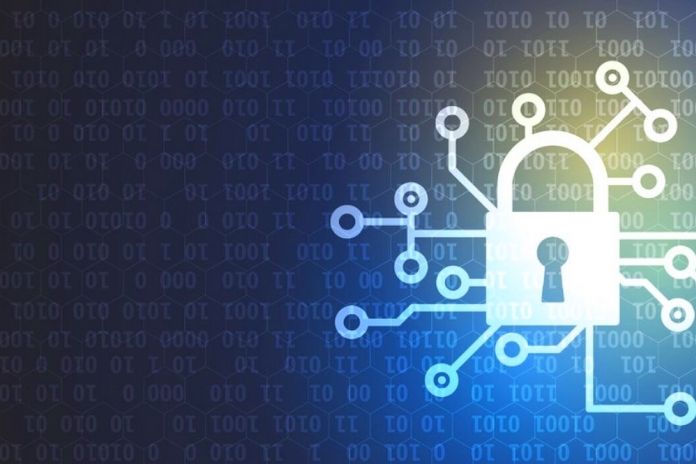AI, Cybersecurity: Science or fiction plus artificial intelligence (AI) plays a crucial role in digital transformation. Companies are increasingly using them. Managers are trying to understand better how best to use the potential within. Be it to open up new business areas, secure competitive advantages or better analyze the vast amount of data collected, for example, to optimize interaction with customers.
Despite this development, there are still some not entirely correct ideas about what constitutes AI. This is because AI is a generic term covering a range of technologies such as machine learning, computer vision, natural language processing and deep learning. They are all in different stages of development and implementation. The use of AI in dynamic pricing and targeted marketing, for example, has been shared for some time. Actual AI computing, where machines “think” like humans, is still a long way from becoming mainstream. Consequently, the discussions about AI and its potential disruptive move between these two poles. For some clarity, consider the three areas of practice where artificial intelligence is used:
- Artificial superintelligence is the type of AI we see in science fiction and movies like The Matrix. This type of research aims to develop computers that are superior to humans in virtually every way, possessing what author and analyst William Bryk once called “perfect memory and unlimited analytical power.”
- General AI refers to a machine that is as intelligent as a human and, like humans, can solve problems that require the ability to learn and think logically.
- Artificial Narrow Intelligence (ANI), also known as “weak” artificial intelligence, uses a computer’s superior ability to process vast amounts of data and recognize patterns and relationships in it that are very difficult (or impossible) for a human to determine manually. This form of artificial intelligence is used in various cybersecurity and other big data applications.
AI In The Company
Companies have started investing in AI. AI predicts electricity needs at utility companies, teaches vehicles to be their chauffeurs, and controls robots that pack and ship Amazon orders. Early adopters of AI are mostly technology, telecommunications and financial services companies that use AI for various technology areas and as a core business model. What unites successful implementations is that they enjoy the full support of senior management.
Safety, Risk, AI
The use of AI is changing the way we work. The tasks shift from less demanding activities to more strategic functions. You can use AI to analyze customer data, business operations, and other processes that employees cannot calculate or manage manually. But AI doesn’t work on its own or in a vacuum. It relies on humans creating the knowledge trees from which it learns and trains the algorithms.
For example, AI helps security professionals identify threats. Mobile devices, cloud services and the Internet of Things have ensured that the attack surface has increased immensely. AI automatically aggregates data from different files, maps them to existing compliance requirements and excludes false positives. Risks and potential damage from internal and external threats can be better assessed with the help of AI-based technologies. And artificial intelligence offers the possibility to automate corrective measures. They are used in the notifications that indicate potential threats. Those of humans then supplement the supplied analyzes. So AI doesn’t just detect threats. First and foremost, it prevents
The need for AI-supported applications is increasing. Businesses are actively looking for tech-savvy employees, and job seekers are responding to that need. So, native AI technologies have advantages in threat prevention.
Artificial intelligence makes systems more intelligent and expands the competence of the employees and security experts within a company. There are chatbot apps that help young professionals use certain technologies and AI that adapts the information provided to the level of knowledge of the respective user. IT departments often try to attract employees with a broader range of skills. It can be assumed that AI-based security products will support users in their learning process more flexibly and proactively in the future. There is no doubt that robust AI solutions can mitigate the impact of the skills shortage and skills gap. Especially in the area of cyber security. Not surprisingly, many of the current security solutions on the market claim artificial intelligence and machine learning.
Native AI Platforms
Most security vendors now claim to use artificial intelligence or machine learning in their product and service offerings. This is true for individual aspects of the heuristic or the signature creation process. They can be optimized and partially automated. However, such approaches fall short of the promise of AI to prevent threats that we are not even aware of today.
Native AI platforms with their much more extensive solution portfolio are designed for these requirements. In addition, such solutions only require minimal updates to the underlying AI models from different generations. Ideally, there are also data science functions with deep learning algorithms to detect anomalies. A unified technology architecture based on Continuous Integration and Continuous Delivery principles (the CICD principles) guarantees that the operations run at the necessary speed.
A cross-platform approach based on native AI offers several advantages. This applies equally to the preventive part and the actual detection and defense against threats within the “kill chain”. If a team lacks resources or expertise, such platforms can be operated as self-managing security operations centers. They then initiate responses to active threats without human intervention. If it is an experienced team, AI platforms provide essential data to react faster to complex threats. Solutions of this type are integrated into existing security environments via an open API architecture. This makes them reasonably flexible for different company sizes and uses in multinational corporations.
Also Read: Cyber Security In Digital, Mobile Payment Transactions

